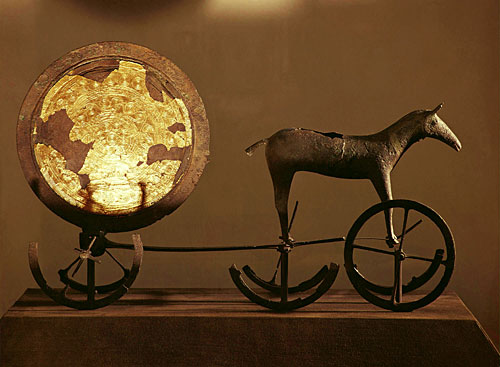Schedule
and Requirements
Topics and Readings
EARLY HUMANS
Homo erectus to Homo sapiens
Language and art
Becoming Human
PALEOLITHIC HUMANS
Chauvet, France
Caves of Lascaux, France
NEOLITHIC HUMANS
Çatal Hüyük, Turkey
Stonehenge, Britian
MESOPOTAMIA/EGYPT
Ur, Iraq
Saqqara, Egypt
GENESIS, The Bible
Babylon, Iraq
Palace at Nimrud, Iraq
HOMER, THE ILIAD
Mycenae, Greece
Troy, Turkey
SOPHOCLES, OEDIPUS
Theatre of Dionysus, Athens, Greece
PLATO, THE APOLOGY
The Acropolis/Parthenon, Athens
Persepolis, Iran
AUGUSTUS
Ara Pacis Augustae, Rome
GOSPEL OF MARK
AUGUSTINE, CONFESSIONS
ISLAM/BYZANTIUM
Dome of the Rock, Jerusalem
Hagia Sophia, Constantinople (modern Istanbul,
Turkey)
EINHARD, CHARLEMAGNE
Imperial Palace and Chapel, Aachen, Germany
|
|
First questions
Why?
- "Since liberally educated people and good citizens must have
an understanding and appreciation of their culture (that which has
made them what they are) Hampden-Sydney College requires that all
students complete a three-semester sequence of courses on Western
Culture."
How?
- These courses investigate the events, people, and ideas that have
shaped western civilization. The Western Culture courses are
interdisciplinary in nature and provide an overview of the western
experience-its history, religion, philosophy, literature, and arts,
from its roots in the early civilizations of the Middle East to the
present day.--Hampden-Sydney
College, Western Culture
- Interdisciplinary? What disciplines?
What?
- Common topics and events are civilization in the Fertile Crescent,
the rise of Athens and democracy, the Roman Empire and its
aftermath, Hebrew culture, and the rise of Christianity. Common
texts are Homer, Iliad (selections); Sophocles, Oedipus
The King; Plato,
Apology; Genesis (selections) and one gospel (selections);
Augustine, Confessions (selections). For specifics, see sidebar.
To these requirements I add a reading from Ancient Rome and the Early Middle Ages.
Where?
- We often make assumptions that we are all talking about the same
thing. Take a moment to write down what the "west" in Western
Culture means to you.
To what end? Here are the
outcomes assessment goals for the Western Culture Core:
Goal 1--Students will demonstrate familiarity with (a) historical events
and (b) intellectual issues of Western Culture.
Goal
2--Students will develop their ability to read and analyze important
texts and artifacts, such as music, art and architecture, produced
throughout the sweep of their cultures history.
Goal 3--Students will
learn to explore in class discussions and written assignments questions
provoked by their study of events as well as texts.
Goal 4--Students will
demonstrate an understanding of historical events and cultural
achievements as products of their time and as precursors of the present.
Goal 5--Students will
demonstrate an understanding of the connections between the events and
achievements of the past and the way we live now.
Goal 6--Students will
articulate the value of the course for them.
First Assignment:
- What is the difference between culture and civilization? Get a dictionary definition of each word. Think about it
and come to class ready to talk about an answer.
- Where does the text think our topic starts
(Hunt, The Making of the West)?
- What does our text think our topic
includes (Hunt)
Hint: 2
and 3 can be answered by skimming the table of contents of the text.
Supplemental reading for those who
are interested:
Human evolution from Homo
Erectus to Homo
Sapiens Sapiens.
|
